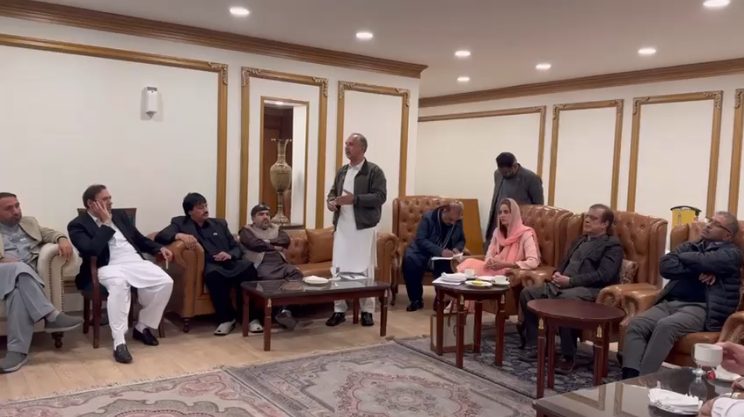The Pakistan Tehreek-e-Insaf (PTI) recently convened a joint parliamentary meeting, ostensibly to strategize for the upcoming sessions of the National Assembly and Senate. While this might appear as an effort to address pressing national issues, a closer look reveals a troubling pattern: the party’s reliance on baseless claims of political victimization and alleged human rights violations against its members as a manipulative tactic to sway public sentiment.
PTI’s claims of victimization and human rights abuses appear to be a calculated move to divert attention from its own governance shortcomings and political missteps. Rather than engaging in meaningful debate on issues like economic instability, unemployment, and law and order, the party seems more focused on projecting itself as a victim of systemic oppression.
This narrative is not only baseless but also a deliberate attempt to manipulate the minds of its supporters by painting an exaggerated picture of persecution. Historically, PTI has employed such tactics to rally its base, creating a siege mentality among its supporters.
By doing so, it deflects criticism and accountability for its failures while attempting to gain sympathy. However, this strategy undermines the very democratic principles the party claims to uphold, as it shifts the focus from genuine national concerns to self-serving political theatrics.
The parliamentary session, a crucial forum for discussing policies and addressing national challenges, has been reduced to a stage for PTI to air its grievances. Instead of using this opportunity to propose solutions for the myriad issues facing Pakistan, the party has chosen to center its agenda around its self-proclaimed victimhood.
This approach not only disrespects the institution of Parliament but also wastes valuable time that could be spent on constructive policymaking. By prioritizing its internal narrative over the needs of the nation, PTI demonstrates a lack of seriousness in fulfilling its role as an opposition party.
Such actions highlight the party’s disconnection from the struggles of ordinary Pakistanis, who expect their representatives to work towards alleviating their hardships, not indulge in political posturing.
PTI’s baseless claims are part of a broader strategy to manipulate public perception. By perpetuating the idea of being targeted unfairly, the party seeks to galvanize its supporters and distract from its internal fractures and lack of vision. This manipulative approach is a disservice to the public, as it fosters division and polarizes the political landscape.
Furthermore, PTI’s rhetoric of victimization often lacks credible evidence and relies heavily on emotional appeals rather than facts. This undermines the credibility of its arguments and erodes trust in democratic institutions. Instead of focusing on baseless allegations, the party should channel its energy into addressing the real issues affecting the nation.
PTI’s current trajectory reflects a troubling unwillingness to accept accountability or engage constructively in the political process. If the party continues to prioritize manipulation over meaningful governance, it risks alienating not only its political allies but also the very electorate it seeks to represent.
Pakistan deserves an opposition that holds the government accountable through facts and constructive criticism, not one that resorts to baseless victimization narratives. PTI’s leadership must recognize that genuine public trust is built through transparency, responsibility, and a focus on the greater good, rather than self-serving political gimmicks.
The PTI’s baseless claims of victimization and human rights violations are a glaring example of its manipulative tactics aimed at distracting the public from its own shortcomings. By exploiting parliamentary platforms for personal agendas, the party is failing in its responsibility to address the nation’s real challenges.
To regain credibility, PTI must abandon its divisive rhetoric and focus on constructive engagement that prioritizes the welfare of the people. Until then, its actions will remain a testament to its misplaced priorities and a reminder of the damage that manipulative politics can inflict on democratic discourse.


